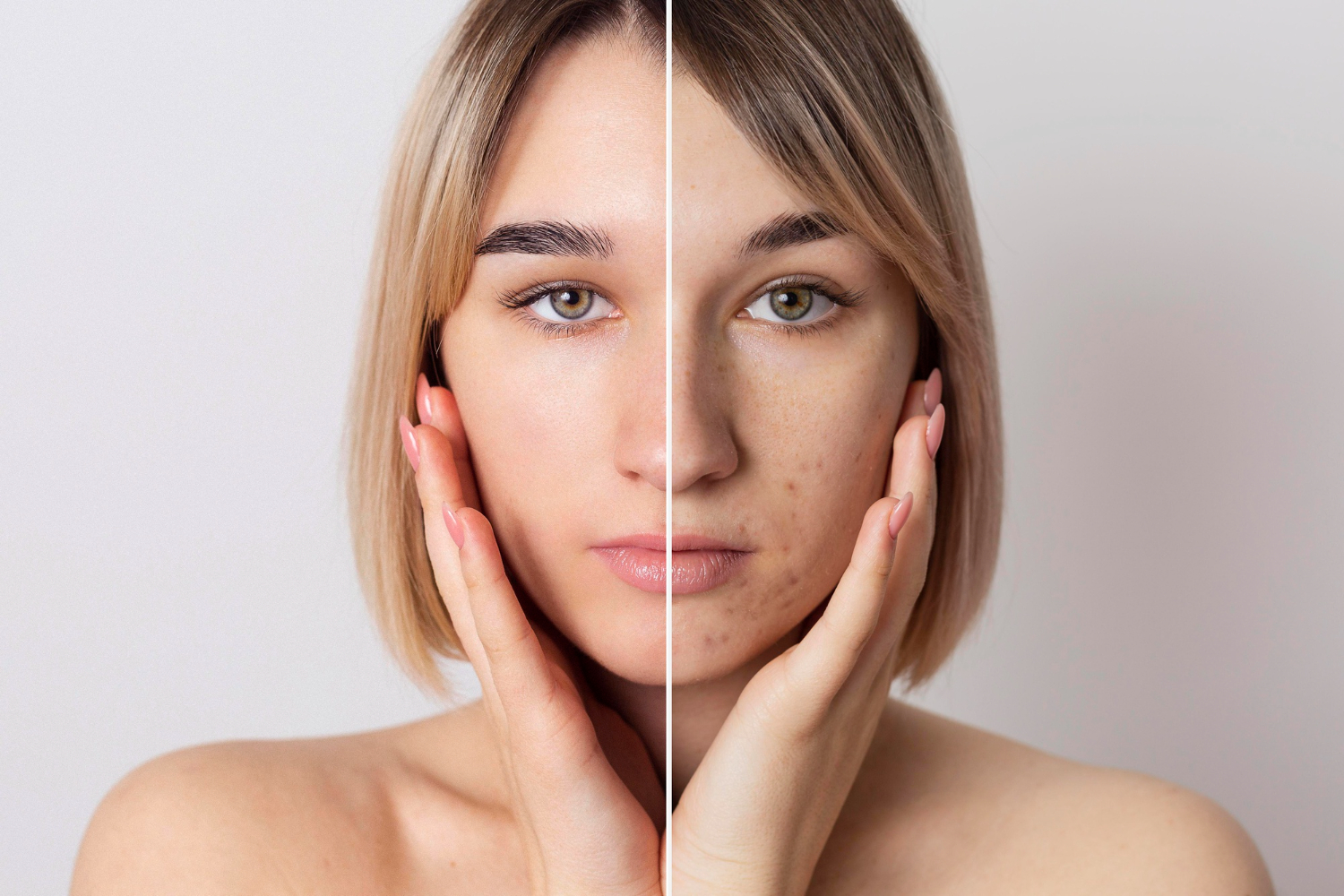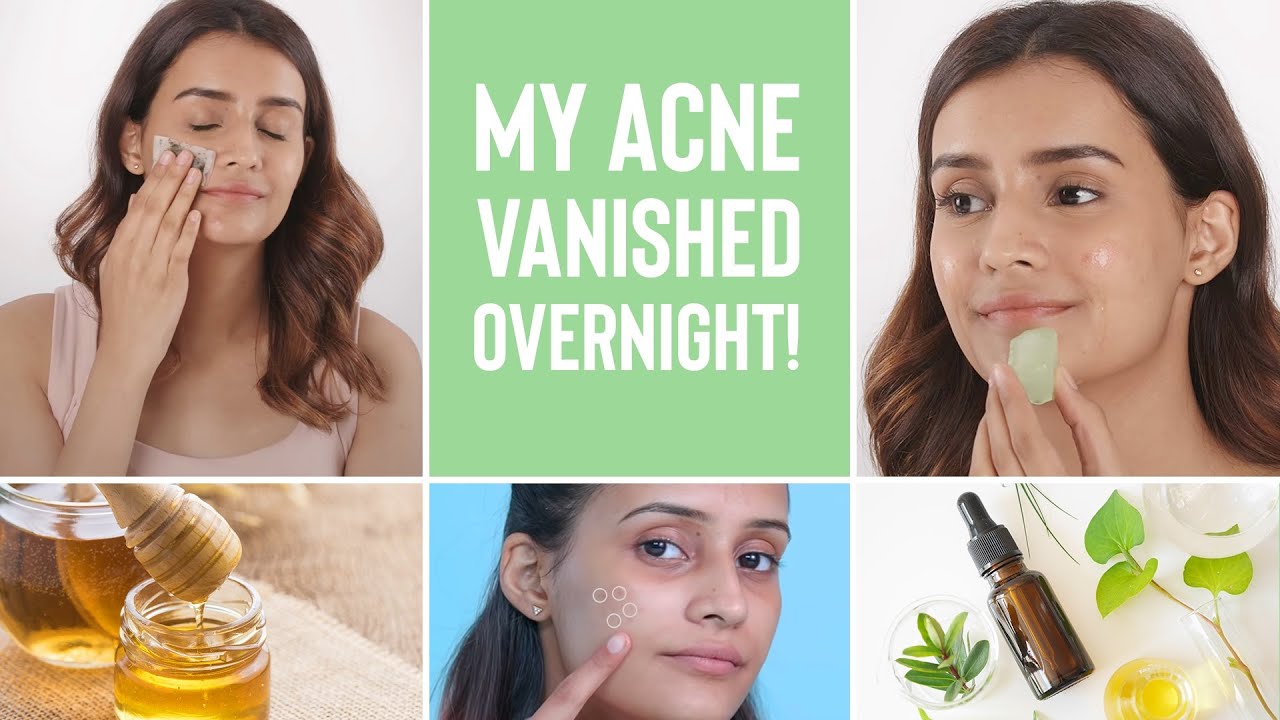Acne Remedies - How To Find The Right Treatment For You
Acne is a frustratingly pervasive skin problem that may be difficult to cure. Acne remedies extend from natural treatments to traditional treatment options. Acne is caused by the skin producing too much oil, or sebum.
Author:Suleman ShahReviewer:Han JuJan 27, 20231 Shares414 Views

Acne is a frustratingly pervasive skin problem that may be difficult to cure. Acne remediesextend from natural treatments to traditional treatment options. Acne is caused by the skin producing too much oil, or sebum.
Acne is a skin problem brought on by the buildup of oil and dead skin cells in the hair follicles. Whiteheads, blackheads, and pimples are the results. Most individuals have acne in their adolescent years, although anybody may get acne. Acne may appear anywhere on your body, including your face (forehead, nose, cheek, chin, etc.), back, arms, neck, chest, and even your forearms.
Although there are effective treatments for acne, this condition may be difficult to manage. The acne and bumps are hard to heal, and as soon as one starts to go, another appears. Acne may be physically painful and emotionally devastating. The sooner you begin therapy, the less likely you are to have these complications.
Process Of Acne Developement
Sebaceous glands are a kind of oil gland found in the skin. Sebum, which is produced by the glands, has a texture and appearance somewhat dissimilar to oil. It's a moisturizer, an anti-aging aid, and a shield for your skin.
The sebaceous glands might begin overproducing sebum for a variety of reasons. The oil gland duct becomes blocked. Bumps of collected sebum seem like they're on the surface of the skin (whitehead).
Whiteheads become blackheads when exposed to dust and pollutants for long enough. Glands that are infected with bacteria become inflamed and pus-filled due to the infection's effect on the surrounding tissue (Pustular acne).
Nodular acne describes the severe kind that may become hard. Acne may create a hard, pus-filled tube within the skin in extreme situations. The condition is medically recognized as acne conglobata.
Acne Causes
When oil and dead skin cells accumulate in your skin's pores, acne develops. There is an oil gland called a sebaceous gland associated with each pore. If your pores are clogged up with excess sebum, a kind of bacteria called Propionibacterium acnes may flourish.
Your body's immune system is attacking P. acnes, which causes inflammationand acne on your skin. Whiteheads, blackheads, and pimples are frequent signs of acne, however the severity of individual instances varies widely.
Acne may have several potential causes, such as heredity, food, stress, hormonal shifts, infections, and so on. The best way to treat acne is using standard therapeutic treatments. Even if additional study is required to determine the efficacy of home remedies, they are still an option.
Acne Remedies
Anti-acne drugs either combat acne's underlying bacterial infection or reduce oil production and inflammation. It might take anywhere from four to eight weeks for the majority of prescription acne medications to work. Acne clearing up entirely might take months or even years. The potential for adverse consequences makes few treatments suitable for pregnant women.
Topical Medications
- Retinoids:Retinoids or tretinoin help mild acne. Creams, gels, and lotions. Tretinoin, adapalene, and tazarotene are examples (Tazorac, Avage, others). As your skin adjusts, you apply this medicine every night. Prevents hair follicle plugging. Avoid mixing tretinoin and benzoyl peroxide. Topical retinoids make skin sunsensitive. They may dry and redden skin, particularly in dark or Black individuals. Adapalene may be well-tolerated.
- Antibiotics:These reduce redness and irritation by destroying skin germs. For the first several months of therapy, take a retinoid in the evening and an antibiotic in the morning. Antibiotic resistance is reduced by mixing medications with benzoyl peroxide. Clindamycin and erythromycin with benzoyl peroxide (Benzaclin, Duac, etc) are examples (Benzamycin). Avoid topical antibiotics alone.
- Azelaic and salicylic acids:Yeast produces azelaic acid naturally. Antibacterial. A 20% azelaic acid cream or gel applied twice a day is as effective as many traditional acne treatments. Pregnancy and breastfeeding may use prescription azelaic acid (Azelex, Finacea). It also treats acne discolouration. Redness and mild discomfort are side effects. Wash-off and leave-on salicylic acid treatments may prevent clogged hair follicles. Few studies indicate its efficacy. Discoloration and slight discomfort are side effects.
- Dapsone:For inflammatory acne, women should use Dapsone (Aczone) 5% gel twice a day. Redness and dryness occur.
Therapies
There is some evidence that the following treatments, either alone or in conjunction with medicine, may assist some individuals.
- A wide range of light-based treatments have been attempted, with mixed results. Most will need more than one go to the doctor. Additional research is required to identify the most effective strategy, light source, and dosage.
- Some people use chemicals to give themselves a peel. In this method, a chemical solution like salicylic acid, glycolic acid, or retinoic acid is applied repeatedly. Mild acne is suitable for this therapy. Although it has the potential to make the skin seem better, the effects are temporary and more treatments are often required to maintain the desired look.
- When over-the-counter treatments fail to clean up comedones (whiteheads, blackheads, and cysts), your doctor may use specialized instruments to safely and gently remove them. Although this method can enhance your skin's look momentarily, it also carries the risk of leaving scars.
- Injecting a steroid medication into nodular and cystic lesions is an effective treatment option. The discomfort has subsided and the patient has made remarkable progress thanks to this treatment. Skin thinning and discolouration in the treated region are possible side effects.

How To Make Your Acne Disappear Overnight | 4 Home Remedies For Pimples
Homeopathy For Acne
Homoeopathic therapies might be the solution if you're unhappy with the standard medical options available to you. The following are some of the reasons why homeopathic therapy is often recommended for lessening the frequency with which your blood vessels dilate can help reduce redness and stopping acne from returning.
Treatment with homeopathy may alleviate some of the heightened sensitivity to external stimuli that some people are born with. It reduces the color changes that occur during inflammation
It has been scientifically shown that homeopathy is an effective method for treating acne. Acne of any kind responds well to homeopathic treatments. Everyone who uses these sees dramatic improvements in their acne.
Homeopathy is a scientific discipline that emphasizes individualization above the use of any one medicine. Since this is the case, homeopathic remedies may be used to treat any illness or healthproblem.
In the end, it is up to your specific circumstance and personalization. In this way, a complete patient historyis a crucial component of homeopathy.
People Also Ask
What Is The Best Acne Treatment?
African black soap, tea tree oil, aloe vera, green tea, honey, witch hazel, and zinc are just a few of the many effective possibilities. In addition to reducing acne-causing bacteria, the aforementioned substances also alleviate some of the accompanying symptoms, such as redness and irritation.
What Is Acne And How Can You Prevent It?
When sebaceous oils and dead skin cells accumulate in the pores, acne may form. An estimated 50 million individuals in the United States suffer from acne, making it one of the most prevalent skin conditions in the nation.
Acne may be treated at home with a few simple ingredients to help restore the skin's natural oil balance, calm inflammation, eliminate germs, and stop future outbreaks.
Does Tea Tree Oil Work For Acne?
Some opt for all-natural acne remedies like tea tree oil (which is similar to benzoyl peroxide but acts more slowly) or alpha hydroxy acids (which exfoliate the skin and therefore prevent the clogging of pores). It is unclear how effective or safe many of these therapies really are. Lotions and creams for acne often include a variety of all-natural components.
Final Words
Acne is a skin ailment that has several origins. Although some individuals may find the stinging or burning of salicylic acid, niacinamide, or benzoyl peroxide uncomfortable, experts agree that these traditional treatments are the most effective.
It's not uncommon for folks to first attempt home cures. Although most acne home treatments lack scientific evidence of efficacy, they are nevertheless choices for those dealing with the condition. However, if your acne is really bad, a trip to the dermatologist may be in order.

Suleman Shah
Author
Suleman Shah is a researcher and freelance writer. As a researcher, he has worked with MNS University of Agriculture, Multan (Pakistan) and Texas A & M University (USA). He regularly writes science articles and blogs for science news website immersse.com and open access publishers OA Publishing London and Scientific Times. He loves to keep himself updated on scientific developments and convert these developments into everyday language to update the readers about the developments in the scientific era. His primary research focus is Plant sciences, and he contributed to this field by publishing his research in scientific journals and presenting his work at many Conferences.
Shah graduated from the University of Agriculture Faisalabad (Pakistan) and started his professional carrier with Jaffer Agro Services and later with the Agriculture Department of the Government of Pakistan. His research interest compelled and attracted him to proceed with his carrier in Plant sciences research. So, he started his Ph.D. in Soil Science at MNS University of Agriculture Multan (Pakistan). Later, he started working as a visiting scholar with Texas A&M University (USA).
Shah’s experience with big Open Excess publishers like Springers, Frontiers, MDPI, etc., testified to his belief in Open Access as a barrier-removing mechanism between researchers and the readers of their research. Shah believes that Open Access is revolutionizing the publication process and benefitting research in all fields.

Han Ju
Reviewer
Hello! I'm Han Ju, the heart behind World Wide Journals. My life is a unique tapestry woven from the threads of news, spirituality, and science, enriched by melodies from my guitar. Raised amidst tales of the ancient and the arcane, I developed a keen eye for the stories that truly matter. Through my work, I seek to bridge the seen with the unseen, marrying the rigor of science with the depth of spirituality.
Each article at World Wide Journals is a piece of this ongoing quest, blending analysis with personal reflection. Whether exploring quantum frontiers or strumming chords under the stars, my aim is to inspire and provoke thought, inviting you into a world where every discovery is a note in the grand symphony of existence.
Welcome aboard this journey of insight and exploration, where curiosity leads and music guides.
Latest Articles
Popular Articles